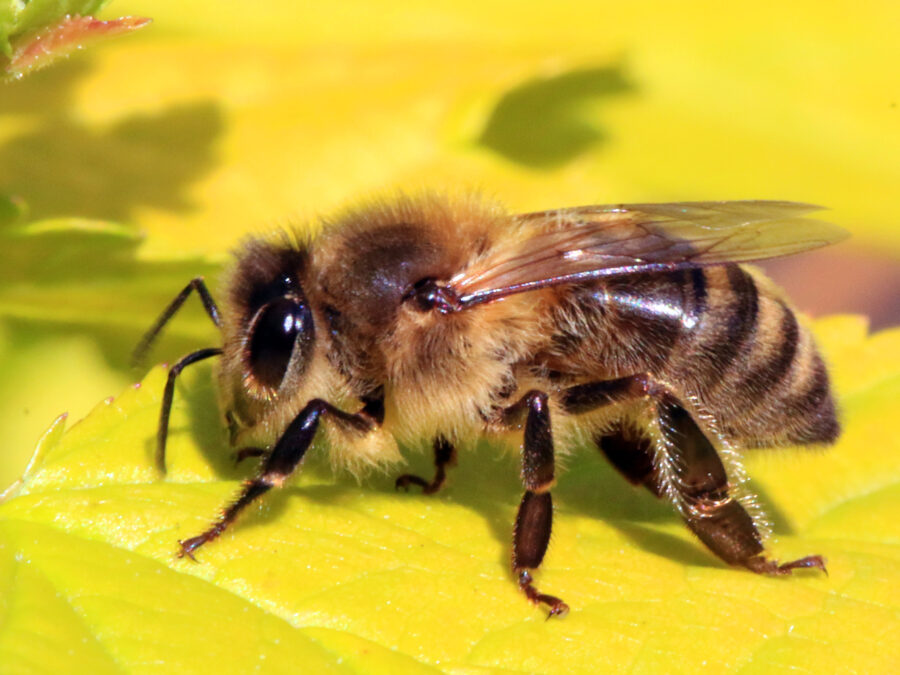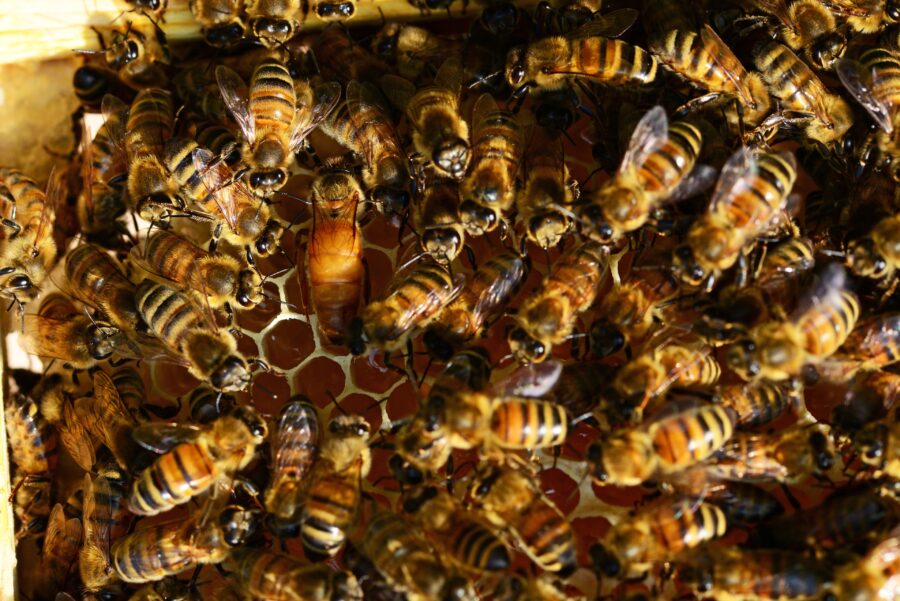Bees Detect Cancer In Humans

Bees are truly amazing creatures that enable flowers to bloom through pollination, which produces fruits and vegetables. Bees can navigate using the sun on even cloudy days by using their natural abilities to judge light angles. New evidence also shows honeybees can detect lung cancer.
Super Smell

Bees have a kind of super sense of smell that enables them to detect odors that most other animals and insects can’t detect. According to a recent research report published by the Biosensors and Bioelectronics journal, the superior olfactory sense that honeybees have and use enables the bees to smell cancer. Their superior sense of smell enables honeybees to detect various odors released as humans breathe, including odors caused by lung cancer.
Trace Amounts Are Enough To Set Them Off

Lab tests show honeybees can use their sense of smell when someone exhales a trace amount of the scent caused by lung cancer. Neural scientists at Michigan State University connected electrodes to living bees’ brains, exposed them to particular scents, and recorded their brain signals. When bees smell cancer, the lab tests confirm it with absolute certainty.
Every Scent Is Unique

Every scent produced a separate and identifiable neural response when individual bees detect cancer and other unique odors. Scientists show each scent produces a distinct and recognizable brain activity pattern that clearly identifies the scent and its cause. The natural mechanism is similar to mechanical equipment that senses odors, but not to the extent that bees can naturally.
Superior Sniffers

Researchers say that the natural abilities of honeybees to detect specific odors are superior to anything created by man thus far. Bees can detect very subtle differences in very similar scents with absolute precision. The ability to smell the very minute differences in odors enables bees to communicate effectively and helps bees smell cancer when humans exhale minute odors.
When a human has lung cancer, a distinct odor is exhaled on every breath that person takes. Mechanical systems can’t detect the cancer odor, which makes them far less effective than honeybees. A bee’s highly efficient olfactory sense is able to detect the cancer cells long before any tumor starts to form.
Not Just Bees

Bees smelling cancer isn’t a special power beholden only to bees. Dogs and ants have shown an ability to detect cancer in humans, too. The mechanism is very similar: a superior sense of smell that humans don’t have and mechanical systems can’t replicate. Instead, the natural ability to smell very distinct and scant amounts of specific odors makes certain animals and insects more capable of detecting cancer naturally.
No Training Required

The bees don’t require special training, as is the case with dogs or ants. Instead of spending several weeks training bees to detect lung cancer, scientists can tap into their neural system and harness the power of their natural odor detection to specifically identify lung cancer in humans.
Scientists hold honeybees still using a tiny plastic harness, do a type of brain surgery on the bees to connect wires to the odor-processing portion of bees’ brains, and record the neural patterns that clearly identify cancer.
Source: Biosensors and Bioelectronics












